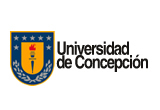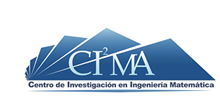Graduate Thesis of Juan Barajas
 | Program | Master in Mathematics, Applied Mathematics, Universidad del Bío-Bío |
|---|---|---|
| Enrollment Year | 2021 | |
| Senior Year | 2022 | |
| Thesis Title | Mathematical modeling in solid-liquid separation: countercurrent circuits | |
Thesis Summary:In this thesis, we study the modeling and numerical analysis of the solid-liquid separation process in a countercurrent decantation circuit. The liquid-solid separation is a fundamental part of many processes of hydrometallurgical treatments, in which liquids or settlings have to be recovered with the best possible quality. According to Svarovsky (2001, [1]), the countercurrent system uses several clarifier-thickeners (CTs) to separate and wash the solid material insoluble in liquids. As a result, the decanted solutions (underflow) contain dissolved solids that are valuable or are a problem for production. This process is known as Counter Current Decanting (CCD). Systems of conservation laws are used to model individual units of CTs [2]. The thesis has the following objectives: The first objective of this thesis is to demonstrate the existence and uniqueness of a conservation law with continuous flux by using a numerical scheme that takes advantage of a specific characteristic of the flow, which is that it can be written as the product of the concentration by the velocity. The second objective of this thesis is to propose a system of conservation laws with discontinuous flux in space describing the CTs that make up the CCD circuit network, with source term describing the coupling between the different tanks. The third objective of this thesis is to show the well-posedness of the problem in the case N = 1. For this, the convergence of a finite volume scheme to the unique entropy solution of the problem is studied. Numerical experiments are performed comparing the solutions obtained with a reference solution generated by the Engquist-Osher method. The fourth objective of this thesis is to propose a finite volume scheme for the case N > 1. It is shown that, under a specific CFL condition, the scheme satisfies the maximum principle. Some numerical simulations are carried out that illustrate the behavior of the solutions in particular cases. | ||
| Thesis Director(s) | Raimund Bürger, Luis M. Villada | |
| Thesis Project Approval Date | 2021, August 02 | |
| Thesis Defense Date | 2022, September 02 | |
| Professional Monitoring | ||
| PDF Thesis | Download Thesis PDF  | |
| (No publications) | ||
<< Back to list of Graduate Thesis.

